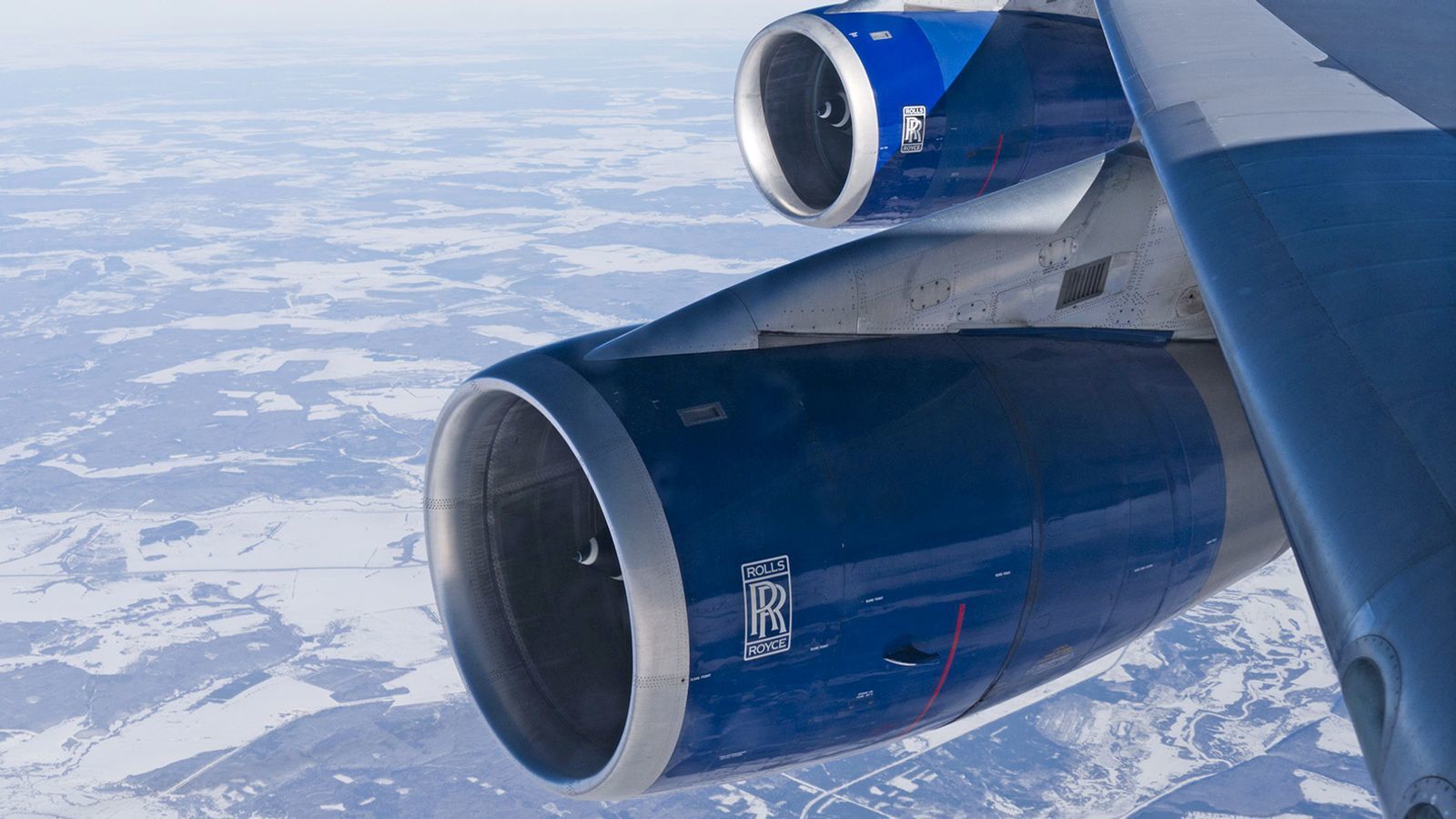Rolls-Royce has reported a worse than expected loss of £4bn for 2020, with the engine-maker blaming the “severe impact” of the coronavirus crisis on aviation.
The company, which charges airlines for the number of hours its engines fly, suffered a plunge in income last year as COVID-19 restrictions globally grounded swathes of aircraft.
The underlying loss was the result of a cash burn of £4.2bn which forced Rolls to scramble to secure its future, raising £7.3bn in debt and equity last year.
At the same time, it moved to save costs by cutting almost a fifth of its global workforce.
A total of 9,000 jobs are expected to be lost under the programme, expected to be completed this year, with the bulk of the pain being felt in its home UK market.
Rolls said on Thursday that it expected the cash outflows to more than halve in the current year and it planned to raise at
least £2bn from selling off some parts of the business, including ITP Aero in Spain, despite some regulatory hurdles.
It was announced earlier this week that Norway had blocked the planned sale of the company’s Norwegian unit, Bergen Engines, on security grounds though it accounted for just £135m of the £2bn proceeds Rolls was targeting.
It insisted its financial position was strong and it could now even cope with any downturn in the continuing crisis facing aviation.
However, it expressed hope in a vaccine-led recovery in demand.
Shares rose by more than 2% in early deals.
Warren East, chief executive of Rolls-Royce, told investors: “We have taken decisive actions to enhance our financial resilience and permanently improve our operational efficiency, resulting in a regrettable, but unfortunately very
necessary, reduction in the size of our workforce.
“With the support of our stakeholders we successfully secured additional liquidity with a rights issue, bond issuance and further credit facilities put in place during the year.
“We have made a good start on our programme of disposals and will continue with this in 2021.”





















